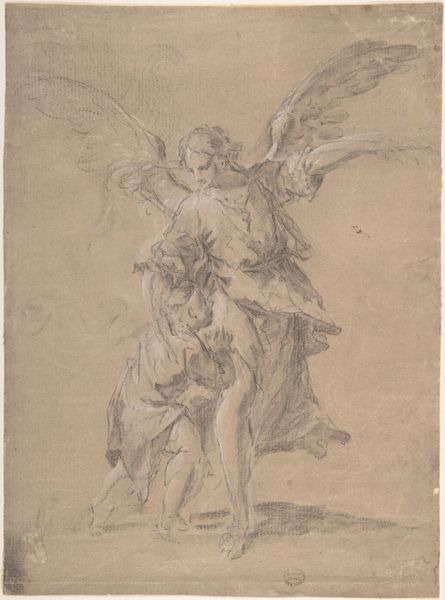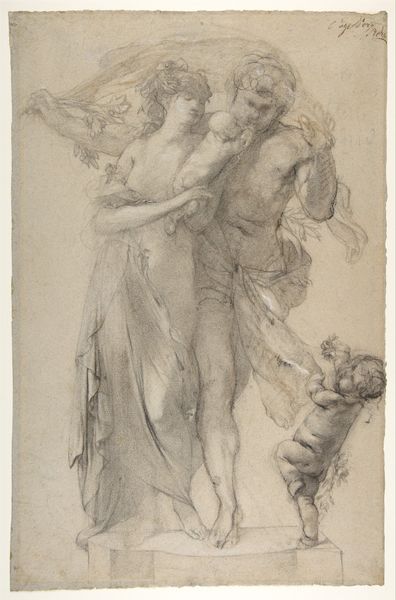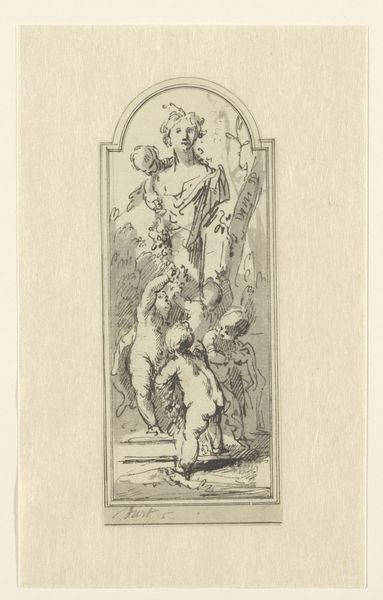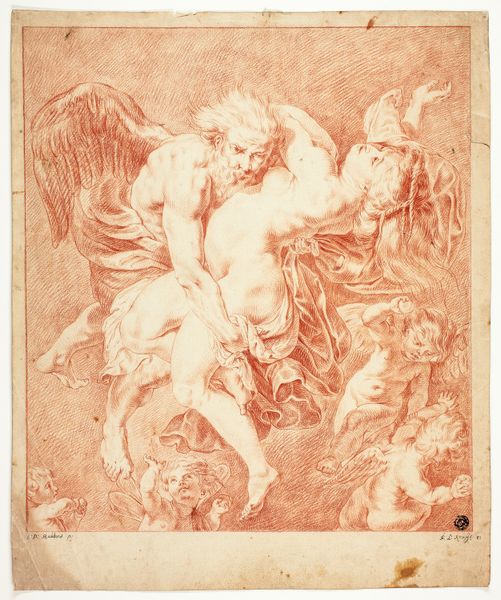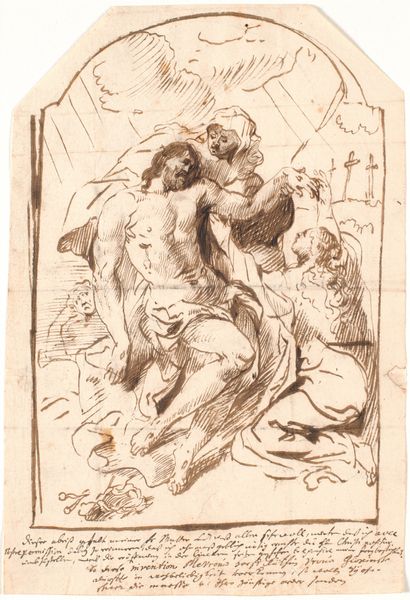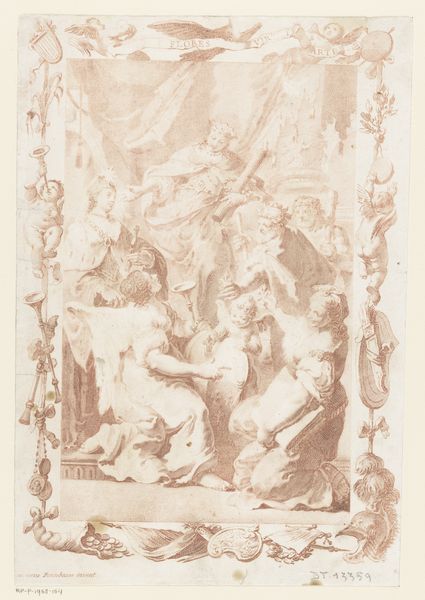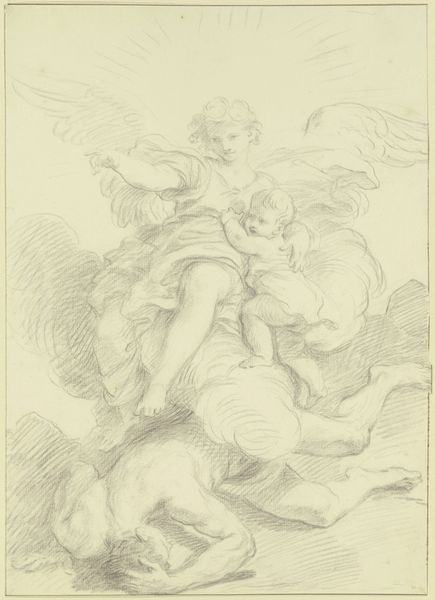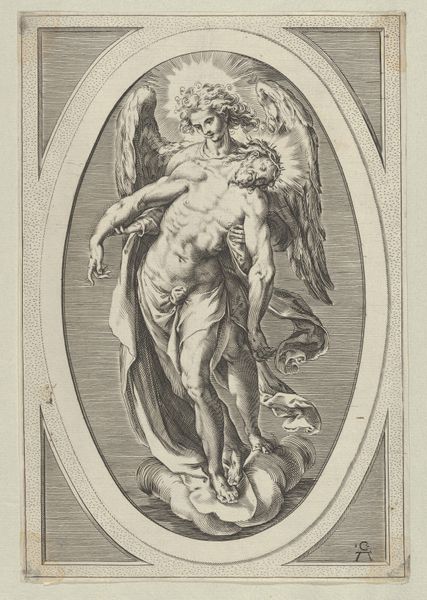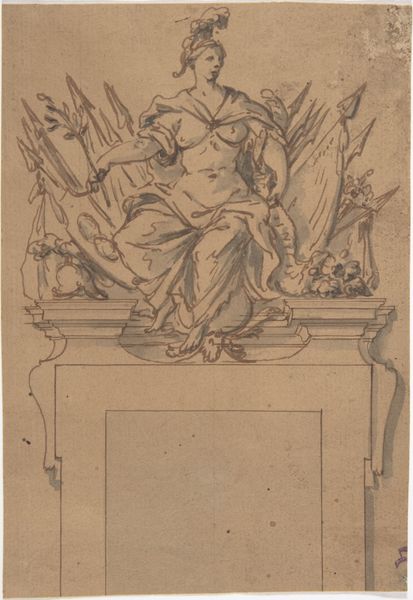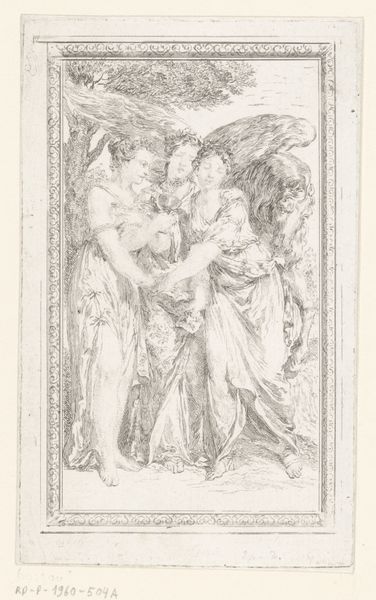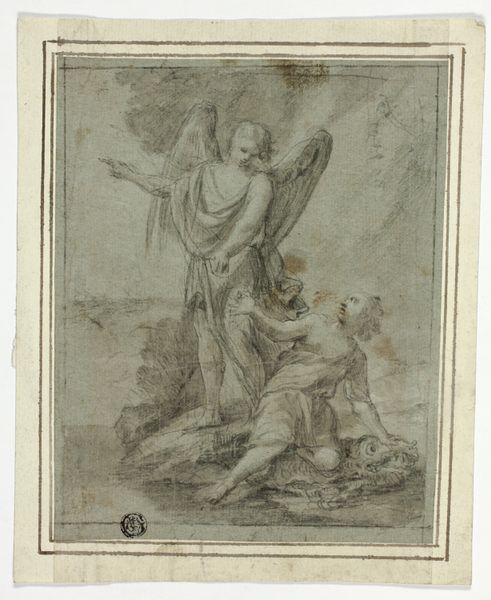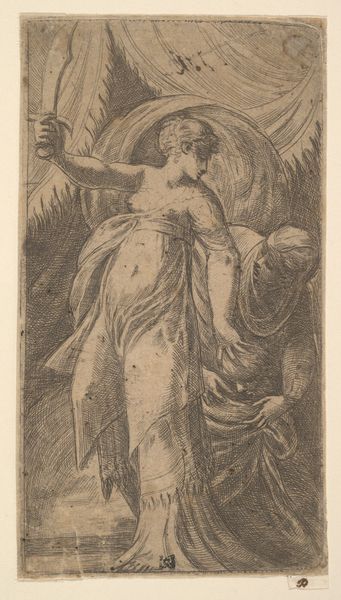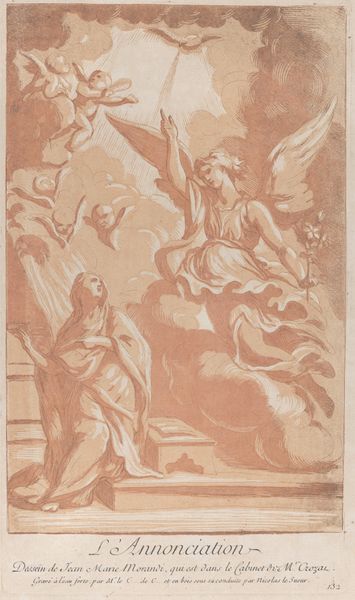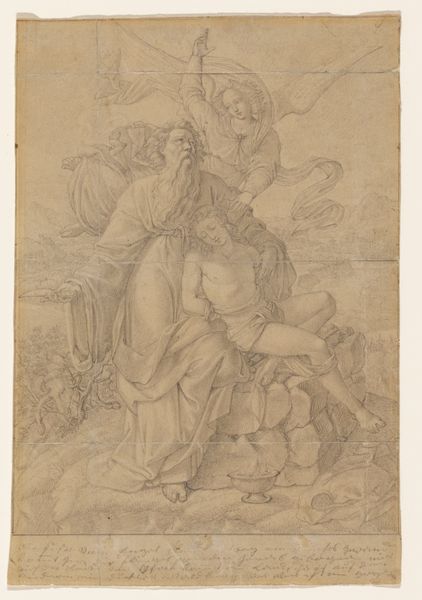
drawing, paper, ink
#
portrait
#
drawing
#
baroque
#
figuration
#
paper
#
ink
#
history-painting
#
watercolor
Dimensions: height mm, width mm
Copyright: Rijks Museum: Open Domain
Constantijn Huygens II rendered this drawing of ‘The Body of Christ Supported by Angels’ in the mid-17th century, at a time when the Dutch Republic was a significant power in Europe. In the throes of the Counter-Reformation, the image of Christ’s broken body became a potent symbol in art, intended to evoke both piety and empathy. But here, Huygens offers more than just religious iconography. The angels attending to Christ are not mere celestial beings, but figures of compassion, cradling the body of Christ with what looks like genuine sorrow. Consider this image in light of the social hierarchies of the time. Christ, often depicted as divine and untouchable, is here vulnerable, dependent on the care of others. Through Huygens’s rendering, we witness not just a religious scene, but a profound exploration of human vulnerability and the quiet dignity of care. It’s a meditation on mortality, and perhaps, a subtle commentary on the ever-present need for empathy in a world often defined by power and privilege.
Comments
No comments
Be the first to comment and join the conversation on the ultimate creative platform.
